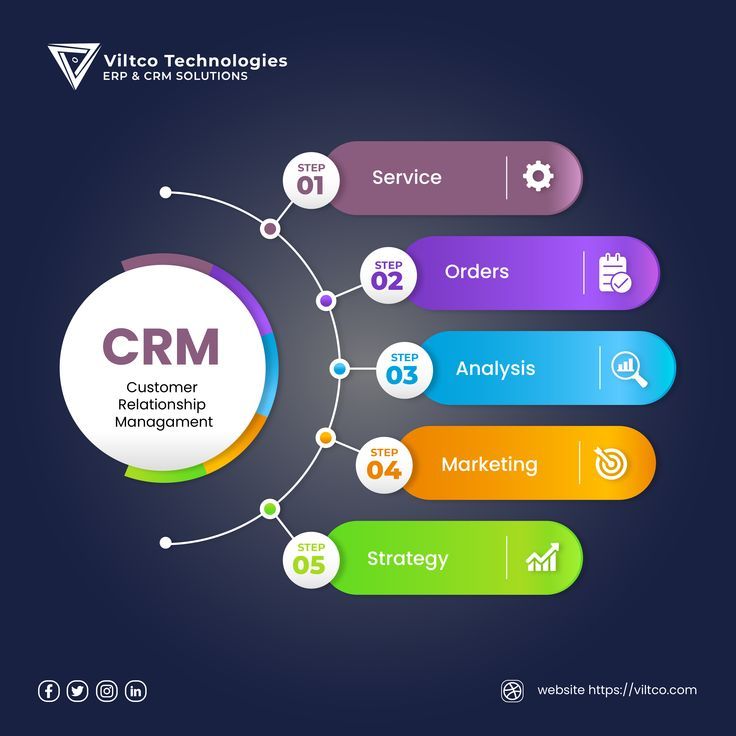In today’s fast-paced digital world, customer relationship management (CRM) systems and social media platforms are essential tools for businesses. CRM helps manage customer data, while social media connects businesses with their audience. Integrating these two can revolutionize how companies interact with customers, providing deeper insights and fostering stronger relationships. Let’s dive into the fascinating world of integrating CRM with social media and explore its immense potential.
What is CRM?
Definition
CRM, or Customer Relationship Management, is a strategy and technology used by companies to manage and analyze customer interactions and data throughout the customer lifecycle. The goal is to improve business relationships, assist in customer retention, and drive sales growth.
Key Features
Key features of CRM systems include contact management, sales management, agent performance tracking, and more. These systems streamline processes and ensure that businesses can stay connected to customers, streamline processes, and improve profitability.
What is Social Media Integration?
Definition
Social media integration involves connecting various social media platforms to other software or systems, such as a CRM. This allows for the synchronization of data and the ability to manage social media interactions from within the CRM.
Benefits
The benefits of social media integration include better customer insights, improved communication, enhanced marketing efforts, and a more holistic view of customer behavior and preferences.
Why Integrate CRM with Social Media?
Enhanced Customer Insights
By integrating CRM with social media, businesses can gain a comprehensive understanding of their customers. This includes demographic information, purchasing behavior, and social media activity, which helps tailor marketing and sales efforts more effectively.
Improved Customer Engagement
Social media integration enables real-time engagement with customers. Businesses can respond to inquiries, comments, and complaints promptly, enhancing customer satisfaction and loyalty.
Benefits of Integrating CRM with Social Media
Streamlined Communication
Integration allows for seamless communication across different channels. Customer interactions on social media are automatically recorded in the CRM, ensuring no information is lost and enabling better follow-up.
Better Customer Support
With a unified system, support teams can access complete customer histories, including social media interactions. This enables more personalized and effective support, leading to higher customer satisfaction.
Improved Marketing Strategies
Integrating CRM with social media allows for more targeted marketing campaigns. By analyzing social media data, businesses can create personalized marketing strategies that resonate with their audience.
Challenges of Integrating CRM with Social Media
Data Privacy Concerns
Integrating CRM with social media raises data privacy concerns. Businesses must ensure they comply with regulations such as GDPR and protect customer data from breaches.
Technical Difficulties
The integration process can be technically challenging. It requires a clear strategy, the right tools, and often, the assistance of IT professionals to ensure a seamless connection between systems.
Steps to Integrate CRM with Social Media
Choosing the Right CRM
Selecting a CRM that supports social media integration is crucial. Popular choices include Salesforce, HubSpot, and Zoho CRM, which offer robust integration capabilities.
Selecting Social Media Platforms
Identify which social media platforms your customers use the most. Focus on integrating those platforms to maximize engagement and data collection.
Setting Integration Goals
Define what you want to achieve with the integration. Whether it’s improving customer service, enhancing marketing campaigns, or gaining deeper customer insights, having clear goals will guide the integration process.
Popular CRM Tools for Social Media Integration
Salesforce
Salesforce is a leading CRM platform known for its powerful integration capabilities. It allows businesses to connect various social media channels, providing a unified view of customer interactions.
HubSpot
HubSpot offers comprehensive CRM and marketing tools, including social media integration. Its user-friendly interface makes it a popular choice for businesses of all sizes.
Zoho CRM
Zoho CRM is known for its flexibility and extensive integration options. It supports various social media platforms, making it easy to track and manage customer interactions.
How to Maximize the Integration
Leveraging Social Listening
Social listening involves monitoring social media channels for mentions of your brand, competitors, and relevant keywords. This helps businesses understand public sentiment and respond proactively.
Utilizing Analytics
Use analytics tools to measure the effectiveness of your social media campaigns. Integrating CRM with social media provides valuable data that can inform future marketing strategies and business decisions.
Personalizing Customer Interactions
With integrated data, businesses can personalize interactions based on customer history and preferences. Personalized communication enhances customer satisfaction and fosters loyalty.
Case Studies of Successful CRM and Social Media Integration
Brand A
Brand A successfully integrated its CRM with social media, resulting in a 30% increase in customer engagement. By leveraging social media data, they tailored their marketing strategies to better meet customer needs.
Brand B
Brand B used CRM and social media integration to improve customer support. They achieved a 40% reduction in response time, leading to higher customer satisfaction and retention rates.
Future Trends in CRM and Social Media Integration
AI and Automation
Artificial Intelligence (AI) and automation are set to revolutionize CRM and social media integration. AI can provide deeper insights, automate responses, and predict customer behavior, enhancing the overall customer experience.
Increased Personalization
As integration technologies advance, businesses will be able to offer even more personalized experiences. This will include tailored content, targeted offers, and individualized customer support.
Common Mistakes to Avoid
Overlooking Data Security
Neglecting data security can lead to breaches and legal issues. Ensure that your integration strategy includes robust security measures to protect customer data.
Ignoring Customer Feedback
Customer feedback is crucial for continuous improvement. Failing to listen to customers can result in missed opportunities and dissatisfaction.
Best Practices for Effective Integration
Continuous Monitoring
Regularly monitor the integration to ensure it functions smoothly. Address any issues promptly to avoid disruptions in customer interactions.
Regular Updates
Keep your CRM and social media platforms updated. Regular updates ensure that you have access to the latest features and security enhancements.
Conclusion
Integrating CRM with social media offers immense benefits for businesses. From enhanced customer insights to improved engagement and personalized marketing strategies, the integration can transform how companies interact with their customers. While there are challenges, the right approach and tools can help overcome them, leading to a more connected and efficient business operation.


